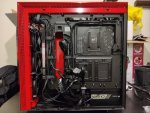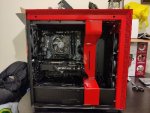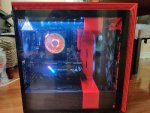For those of you bored at home and have run out of things to watch on Netflix, I can't recommend setting up a home media server enough.
Number of guides available online, but the basic gist is you setup the following programs on any computer you have, preferably one that is on all of the time. Once setup, it just runs in the background and you don't really have to do anything outside of add new TV Shows/Movies that you want. Once a new episode/movie is released, it will be automatically downloaded through a selected download client (torrent/usenet). Depending on your settings, it will automatically upgrade the quality when available.
- Sonarr, will automatically download TV Series that you tell it to.
- Radarr, will automatically download Movies that you tell it to.
- Plex Media Server will share your library to a Plex client that is setup with your account. It can also transcode to a lower quality if your network quality won't play the full quality.
Most smart tv's have a plex client, you can put it on your phone, tablet, laptop, etc. You can also share your library with friends through Plex.
Number of guides available online, but the basic gist is you setup the following programs on any computer you have, preferably one that is on all of the time. Once setup, it just runs in the background and you don't really have to do anything outside of add new TV Shows/Movies that you want. Once a new episode/movie is released, it will be automatically downloaded through a selected download client (torrent/usenet). Depending on your settings, it will automatically upgrade the quality when available.
- Sonarr, will automatically download TV Series that you tell it to.
- Radarr, will automatically download Movies that you tell it to.
- Plex Media Server will share your library to a Plex client that is setup with your account. It can also transcode to a lower quality if your network quality won't play the full quality.
Most smart tv's have a plex client, you can put it on your phone, tablet, laptop, etc. You can also share your library with friends through Plex.




















